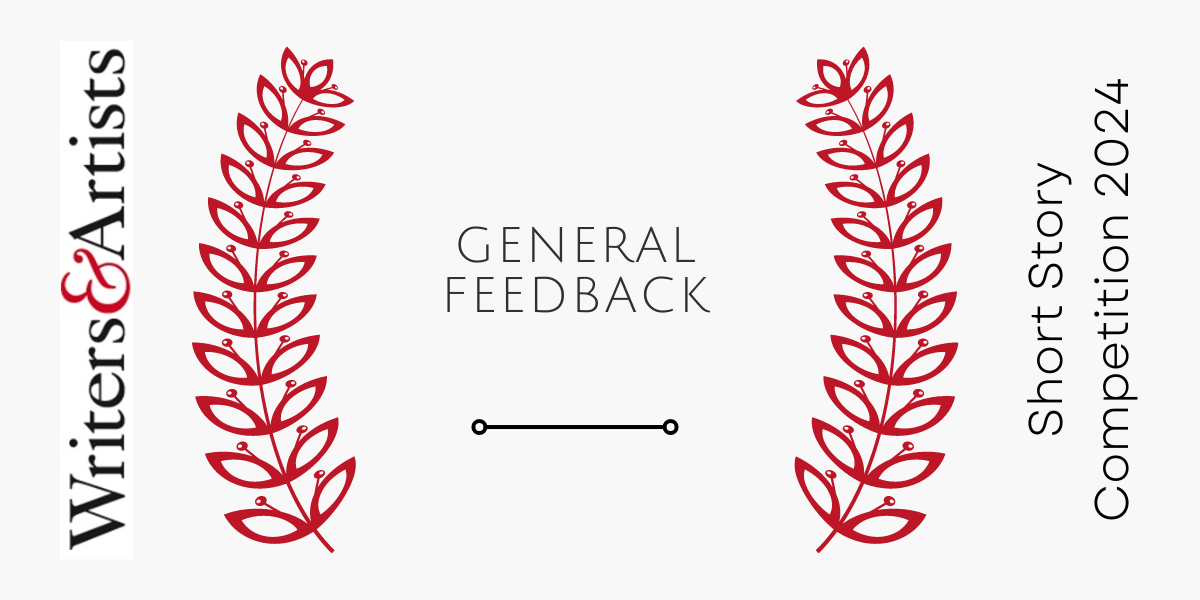As a small team, unfortunately we're unable to offer personalised feedback on each story entered into our annual short story competition. We understand how frustrating this can be so decided to put some time aside and offer some general feedback on the stories we received this year.

-
A lot of the stories started in a really promising way but didn’t develop as interestingly as we felt that they could. This is a common issue when it comes to writing short stories and can often stem from a lack of editing and redrafting. Although a short story is (obviously...) much shorter than a novel, it still needs to have a clear narrative structure. It's worth stressing that it is absolutely okay to not know where your story is going when you first start writing. For many writers, that's the fun bit of the process. But when it comes to honing your story, and preparing it for competitions, etc., it's important to interrogate every sentence to ensure it's propelling your story forward.
"Because only once you have a first draft can you know anything real about the story you are writing. And it is only once you have a completed first draft that the real writing begins. By writing the first draft of your story, you have moved from not knowing to knowing. Now you know your story. Now you know your story well enough to begin turning it into the best version of itself it can be. Redrafting a story is all about making sure it builds most appropriately and most efficiently its ending, right from its first word to its last. But by this time, that’s easy, because writing the first draft has shown you where you are trying to go with your story. Now all you have to do is go there." Dan Powell, prize-winning author of short fiction.
Read Dan's advice article, How to Write a Short Story
-
There were a few story endings where it felt like the author had run out of steam. Choosing the right way to bring your story to a close, and deciding on whether or not to wrap up any loose threads, is difficult when you're restricted by word count. Every writer wants to create an ending that stays with the reader so think about the purpose of your story. Does your story demand resolution for your characters? Does it cry out for a twist that will leave your readers with unanswered questions? It might take you several drafts to get the ending you want to achieve, so don't rush.
"Most people can deliver a fun premise or a great opening gambit, but it’s never satisfying to watch a great start meander and then fizzle out because the writer hadn’t quite worked out what to do with it." Abi Hynes, drama and fiction writer and graduate of Channel 4's 4Screenwriting Course.
Read Abi's article, What Writing for TV Taught Me About Short Stories
-
We read a few stories where the plot read as "this happened and then this happened and then also this happened." This lack of narrative drive often did a disservice to the idea at the heart of the story itself. Show, don't tell is a classic bit of storytelling advice for a reason. While there are times when telling/exposition is necessary, reading a short story that is 100% telling will not engage your readers. The 'But and Therefore' writing rule could be useful for writers struggling with this to explore. It will help you think about the cause and effect in your short story and the importance of tension and rising action.
Here's a selection of further short story advice articles on our site:
Five Tips for Writing Short Stories by Camilla Grudova
Putting Together a Short Story Collection by Vanessa Onwuemezi
10 Tips to Help You Write a Short Story by Susmita Bhattacharya
And an advice article from our competition sponsors Arvon
The Five Big Mistakes People Make When Writing Short Stories by Adam Marek
We hope this is useful, and we're looking forward to reading more of your stories soon. Happy writing!
The W&A Team
Comments